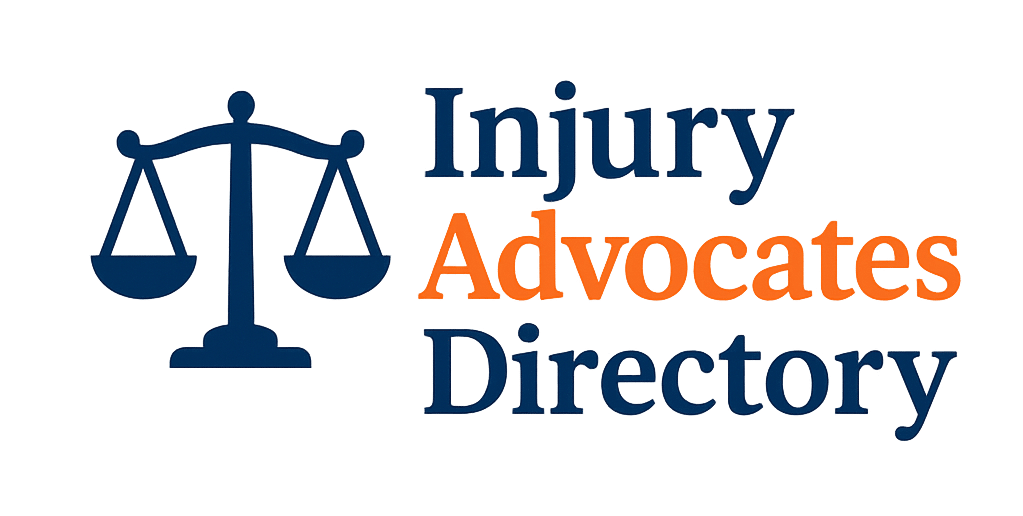Experiencing an injury at work can be a traumatic and overwhelming event. Knowing the steps to take if you’re injured at work can help you navigate the situation effectively and protect your rights. This guide outlines essential actions to take immediately after an incident.
It’s crucial to act promptly to ensure your health and secure your legal rights. From seeking medical help to reporting the incident, understanding the proper procedures can make a significant difference in your recovery and compensation.
What immediate steps should you take if you’re injured at work?
If you find yourself injured on the job, the first few moments are critical. Seek immediate medical assistance if necessary. Even if your injuries seem minor, it’s best to have a professional evaluation.
Next, make sure to inform your supervisor or manager about the incident. This is not only important for your safety but also a requirement for documenting the injury properly. Reporting workplace injuries promptly can help ensure that you receive the appropriate medical care and compensation.
Once you’ve reported the incident, document everything related to your injury. This includes taking photos of the scene, noting witnesses, and keeping records of your medical visits and treatments.
How do workers' compensation benefits work?
Workers' compensation is designed to provide financial benefits to employees who are injured on the job. These benefits can cover medical expenses, rehabilitation costs, and lost wages during recovery.
To qualify for these benefits, you must report your injury within a specific timeframe, usually within 30 days. Failing to report on time can jeopardize your claim and result in lost benefits.
The process involves filing a claim with your employer's workers' compensation insurance. This may require detailed documentation of your injury, medical treatment, and any associated costs.
What should you report after a workplace injury?
Documentation is key when reporting a workplace injury. You should provide a comprehensive account of the incident, including how it happened, where it occurred, and the nature of your injuries.
Additionally, gather witness statements if possible. This evidence can significantly strengthen your claim. Make sure to report any unsafe conditions that may have contributed to your injury, as this can impact your employer's liability.
- Date and time of the injury
- Location of the incident
- Detailed description of what happened
- Names and contact information of witnesses
- Type of injuries sustained
What are your legal rights after being injured at work?
As an employee, you have specific legal rights if you are injured at work. These rights ensure you receive necessary medical treatment and compensation for your injuries.
Under workers' compensation laws, you cannot be fired or retaliated against for filing a claim. It’s crucial to know that your employer is responsible for providing a safe work environment and addressing any hazardous conditions that may lead to injury.
If your employer fails to meet these responsibilities, you may have grounds for a personal injury lawsuit in addition to your workers' compensation claim. Consulting with a legal expert can help clarify your options.
How can you ensure proper medical treatment after an injury?
After a workplace injury, ensuring you receive proper medical treatment is paramount. Follow your doctor's recommendations and attend all scheduled appointments to monitor your recovery.
If you experience pain or complications, communicate these issues to your healthcare provider. Keeping a detailed record of your medical treatment can also be beneficial for your workers' compensation claim.
Furthermore, if your employer has a preferred medical provider, be aware of the guidelines. In some cases, you may be required to see this provider to qualify for benefits.
What documentation is necessary for a work injury claim?
To file a successful work injury claim, certain documentation is required. This typically includes an official incident report, medical records, and any correspondence related to your injury.
It’s essential to keep all receipts for medical treatment and any other related expenses. Thorough documentation can make a significant difference in the approval of your claim.
- Incident report filed with your employer
- Medical records and treatment notes
- Receipts for medical expenses
- Witness statements
- Correspondence with your employer or insurance company
How can employers support employees after a workplace injury?
Employers play a critical role in supporting employees who have sustained injuries at work. Providing a clear process for reporting injuries and accessing medical treatment is essential.
Additionally, employers should ensure that employees receive timely information regarding their rights and the workers' compensation process. Creating a supportive environment can help ease the stress of recovery for injured workers.
Employers can also implement programs that focus on workplace safety, reducing the risk of future injuries. Regular training sessions on safety procedures can benefit both employees and employers.
Frequently asked questions related to workplace injuries
What are the steps you follow when a worker is injured?
When a worker is injured, the first step is to ensure their safety and seek medical attention. Following this, the incident should be reported to a supervisor immediately. It’s crucial to document the situation, including details of the injury and any witnesses. Lastly, workers should familiarize themselves with their rights regarding workers' compensation and reporting procedures.
How does Oregon Workmans Comp work?
In Oregon, workers' compensation is a state-mandated program that provides benefits to employees who suffer work-related injuries. Employees must report their injuries to their employer and file a claim with the Oregon workers' compensation system. Benefits can include medical treatment, wage replacement, and vocational rehabilitation if necessary. It's essential for employees to understand their rights and the claims process to ensure they receive the support they need.
What are the steps you should take in correct order if there is a workplace injury?
Firstly, ensure your safety and seek medical help. Next, report the injury to your supervisor as soon as possible. Document the incident thoroughly, including all details and witness information. After that, file a workers' compensation claim with your employer’s insurance provider, ensuring you submit all necessary documentation. Finally, follow up on your medical treatment and recovery process while keeping records of your progress.
Which of the following steps should you take if you are injured at work?
If you are injured at work, you should first seek medical attention and then report the incident to your supervisor. Following that, document the injury, including photos and witness accounts. Lastly, make sure to file a claim for workers' compensation promptly. Ignoring these steps may jeopardize your health and your ability to receive benefits.

